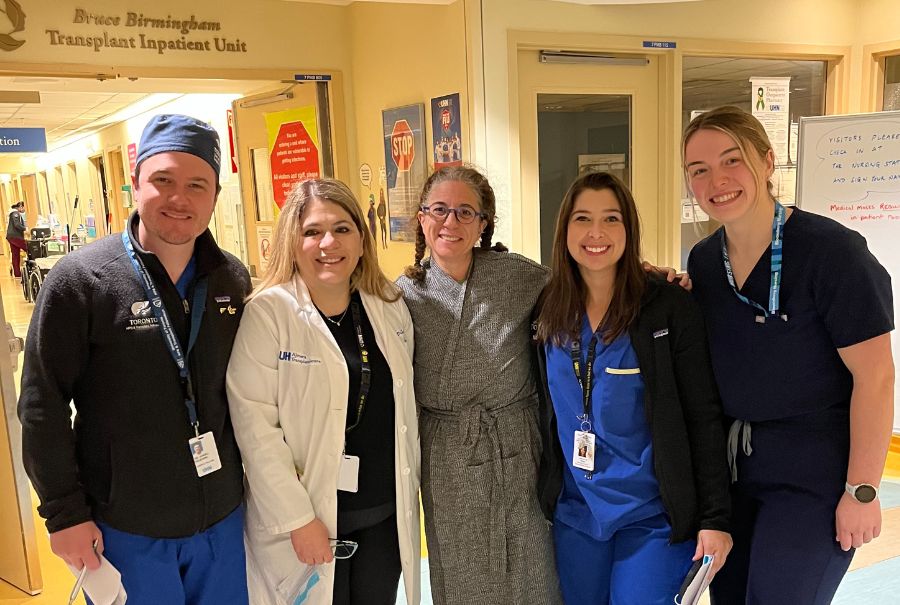
UHN’s Complex Care team has improved treatment management for individuals with chronic kidney disease using their virtual pharmacy program.
Dr. Christopher Chan, Medical Director for the Connected Care and Integrated Care Programs at UHN, established the virtual pharmacy program at UHN to reduce the number of obstacles and negative outcomes related to prescriptions that patients might face. First used during the pandemic to deliver Paxlovid, an anti-viral medication to treat COVID, the program, developed at Toronto General Hospital, has been expanded to assist in more complex care needs – because at Canada’s number one hospital, never been done is what we do.
Patients who are receiving complex care for multiple illnesses may experience physical, verbal and financial barriers, which can result in gaps in their care – they’re not able to afford their medication, they don’t receive proper instructions related to their treatment or they’re not able to access their healthcare providers to follow up.
“When we write a prescription and the patient leaves, that’s often the end of the encounter. Unless they have a follow-up appointment with us, we don’t get to know how the patient managed or if they had the necessary discussions about their medication with their pharmacist.” Dr. Chan explains. “But this type of program allows us to maintain the continuity of their care using a personalized approach.”
Complex care for a complex problem
Many complex care patients struggle with managing their treatment on a daily basis. Nearly 30 per cent of patients in Canada with complex chronic diseases do not pick up new prescriptions from the pharmacy. On average, the patients in the virtual pharmacy program were managing eight different medications, with some taking as many as 13.
Negative outcomes related to a patient’s prescriptions are called adverse drug events (ADEs), which are often the result of issues with communication, such as reporting of side effects and patient monitoring. The virtual pharmacy program not only prevented ADEs, but improved medication access for more than half of the patients – more than 90 per cent of patients received their required medication within two days following their kidney specialist’s visit.
Using the virtual pharmacy program, the team was also able to identify over 200 ADEs which were considered severe and would have required healthcare provider intervention, such as uncontrolled blood pressure or acute injury to the kidneys. An early cost savings analysis of the study, indicated that every 20-minute encounter between the patient and the pharmacist in the virtual pharmacy program would save the healthcare system almost $275 to manage the ADE which could have potentially occurred.
Expanding care for diabetes patients
Dr. Chan and the UHN Connected Care team, in collaboration with the Faculty of Pharmacy at the University of Toronto, are currently expanding this element of care to include those who are managing a new of diagnosis of diabetes. Tackling other chronic medical conditions also allows the team to further understand the gaps in patient care between short-term hospitalization and transition to home.
“Diabetes is one of the most common chronic medical conditions. The transition period between hospital and home is a vulnerable time,” Dr. Chan says. “This was a good opportunity for us to see how this program would work with a wider patient group who have a greater variety of needs.”
They have already observed an improvement in blood sugar control for diabetes patients who are enrolled in the program, as well as a decrease in patient visits. Dr. Chan and his team hope that this program will go on to support treatment plans for other illnesses and help patients who require complex care to live the best lives they can.

No one ever changed the world on their own but when the bright minds at UHN work together with donors we can redefine the world of health care together.


